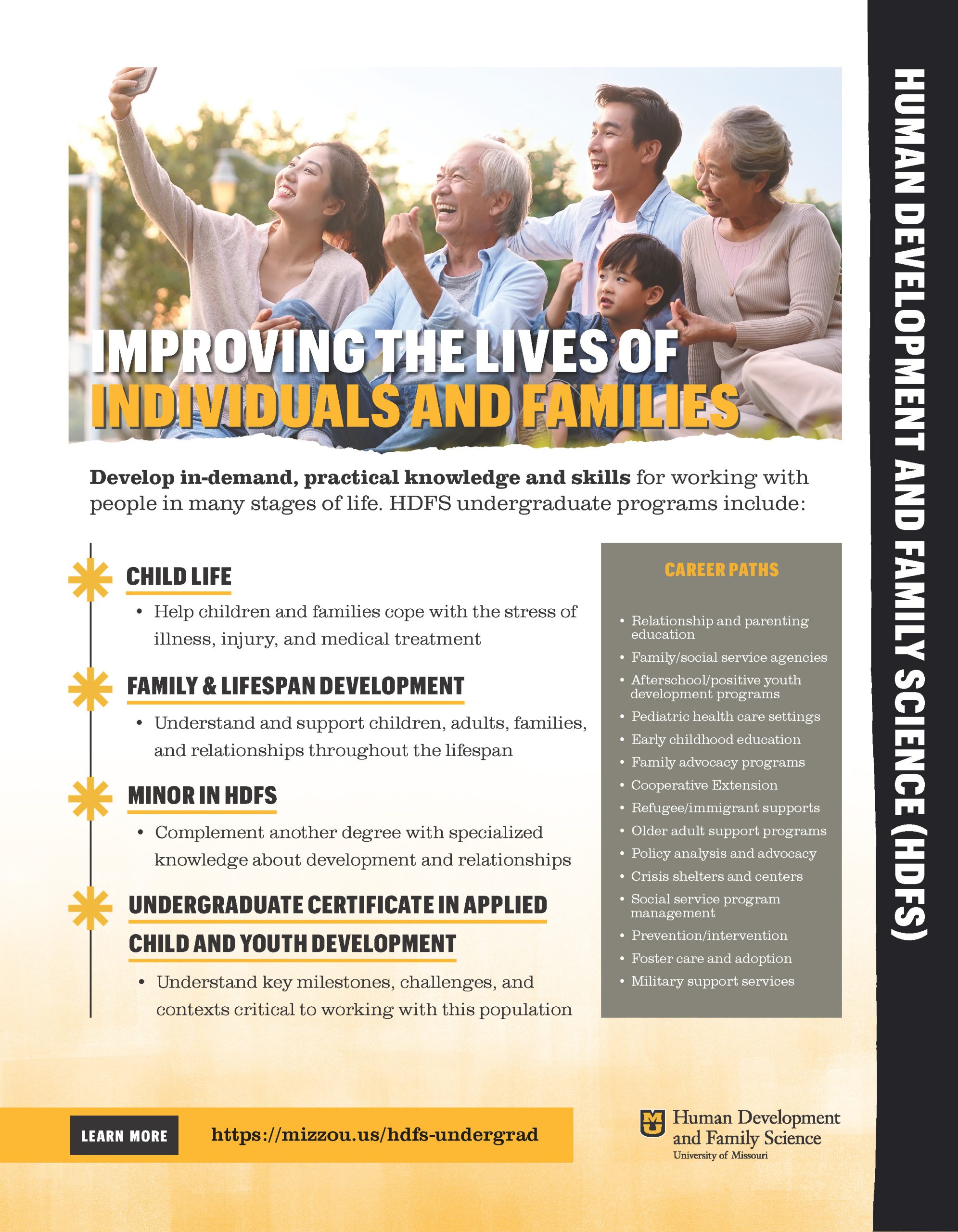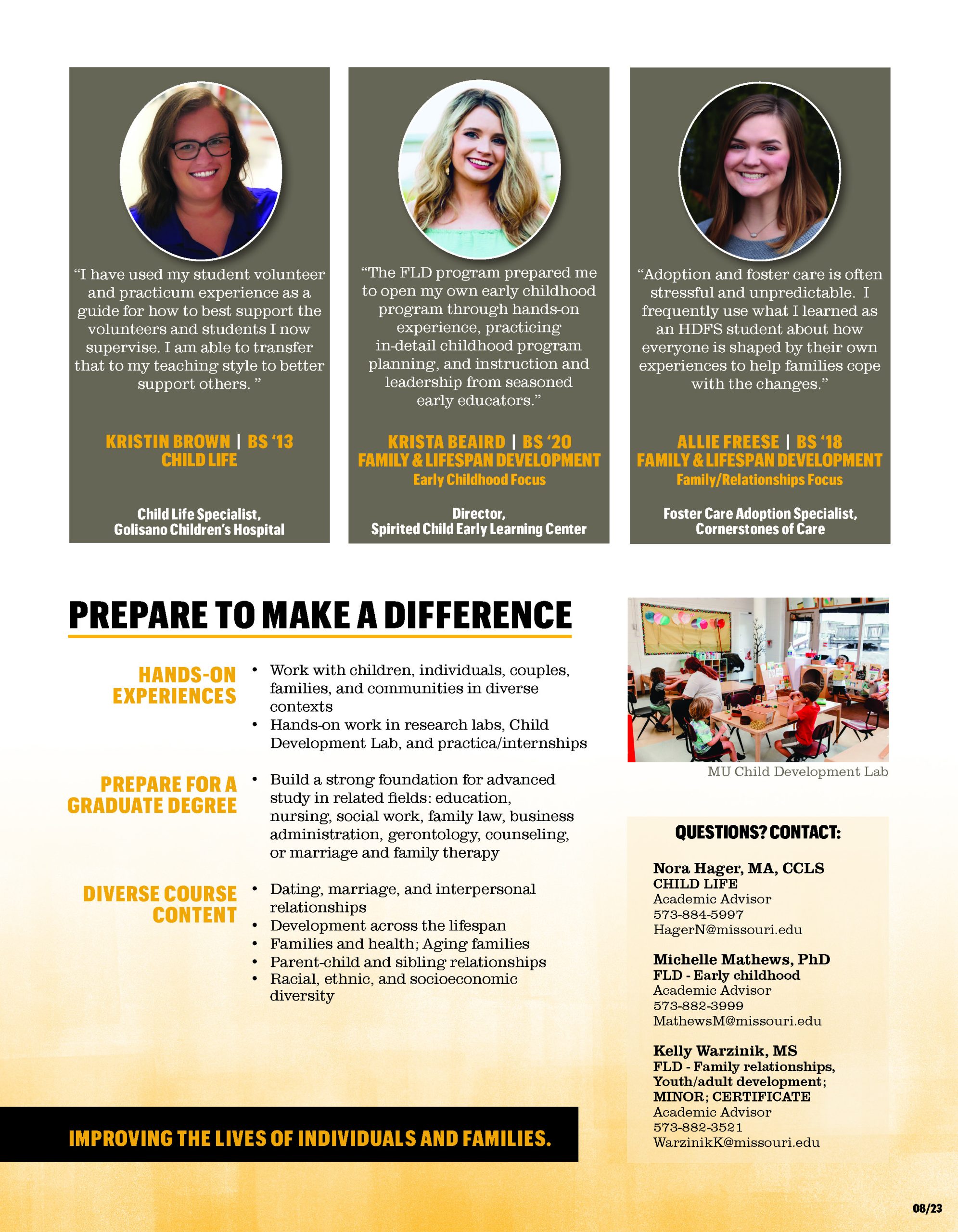The courses in our HDFS undergraduate programs help students develop critical thinking skills about evidence in the science of relationships and development. Our students build in-demand, practical skills for working with people in many stages of life, in many types of relationships, and across many social and cultural contexts.
Our graduates are equipped for diverse careers working with children, adults, and families. HDFS graduates can also translate these skills to other professional spheres like business settings or prepare for advanced graduate study.
Learn more about HDFS and how we support and prepare our students.
Help children and families cope with the stress of illness, injury, and medical treatment
EARLY CHILDHOOD EDUCATION IN A MOBILE SOCIETY (ONLINE)
Focus on the care and learning of diverse groups of young children, families, and communities.
FAMILY AND LIFESPAN DEVELOPMENT
Understand and support individuals, families, and relationships throughout the lifespan.
Understand and apply the science of development and relationships to work in other majors and careers while also building personal life skills.
UNDERGRADUATE CERTIFICATE IN APPLIED CHILD AND YOUTH DEVELOPMENT
Understand the theory and research about developmental change and environmental influences from infancy through adolescence.
Engage in challenging curriculum to learn deeply about individuals and families while building valuable relationships and conducting research with outstanding faculty and other high achieving HDFS students.
Why Mizzou HDFS?
- Supportive culture with hands-on advising
- Hands-on learning in the Child Development Lab and practica/internships in the community
- Opportunities for research experience
- Preparation for the exams for Child Life Certification or the Certified Family Life Educator credential
- A strong foundation for graduate study in a wide variety of disciplines: marriage and family therapy, gerontology, social work, education, nursing, family law, business administration.
- Nationally-recognized faculty who provide award-winning mentorship.
HDFS Freshman Interest Group (FIG)
Join our Love, Relationships & Family Freshmen Interest Group (FIG) to explore careers in HDFS.
Interested in people and how they get along? Want to help others, but aren’t sure how? The Love, Relationships & Family FIG may be right for you! In this FIG, you will be introduced to the field of Human Development and Family Science, hear from developmentalists and family scientists on campus and in the community, and explore human-centered careers. This FIG would be appropriate for students who want to become therapists, social advocates, family service providers, and helpers to people of all ages.
Graduates of HDFS must meet:
- MU General Education Requirements
- And the departmental technical standards of preparation for professional service to individuals and families
Financial Support Options
- MU scholarships for first-time, transfer, and continuing undergraduate students
- Federal financial aid eligible
- Scholarship opportunities available from HDFS
 Click image to open brochure
Click image to open brochure